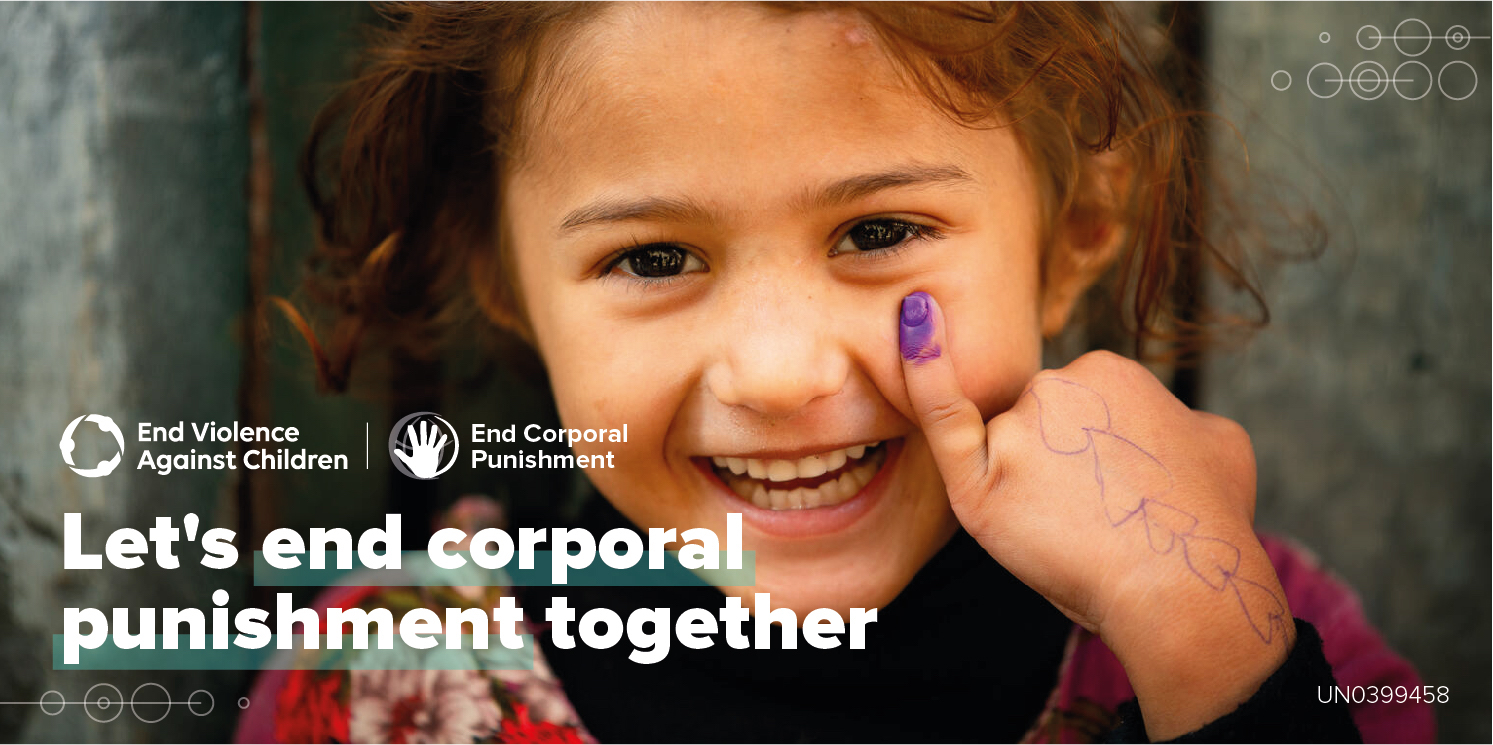
The International Day to #EndCorporalPunishment on 30 April was an important, global moment to advocate for protecting children from violent forms of punishment - in all settings.
Corporal punishment is the most common form of violence against children – prevalent around the world and occurs in schools, juvenile justice centres, alternative care settings and in homes. Decades of research have found that there are no positive impacts of corporal punishment and revealed a concerning range of negative outcomes, including long-term, sometimes lifelong harm. It harms physical health, and causes cognitive and behavioural problems, aggression and depression. Yet, 86% of the world’s 2.2 billion children are not legally protected from the practice.
We know enough about the solutions to end corporal punishment and enacting and implementing legal reform is critical. It sends a message that corporal punishment is not acceptable, and over time attitudes and behaviour across society shift towards positive, non-violent childrearing methods.
End Violence catalyses progress towards the universal elimination of corporal punishment of children. We advocate for, monitor, and provide technical support to achieve and implement law reform to prohibit violent forms of punishment across the world. Over the last 40 years, the number of countries banning corporal punishment has gone from one to 65.
Explore resources, evidence and tools to help combat the practice:
End Violence has produced implementation guidance on laws that ban corporal punishment, describing the five key steps for moving from prohibition to practical elimination of corporal punishment. Available in 10 languages, the guidance describes how straightforward measures can be implemented to make effective progress in eliminating violent punishment of children.
A growing collection of evidence suggests that prohibition is associated with changes in attitudes and practices that positively impact children's lives. End Violence’s End Corporal Punishment initiative has developed a briefing paper that summarises the evidence available, both at country-level and comparative research that compares countries with and without the prohibition of corporal punishment.
Find out more about the evidence on the impact and associations of corporal punishment in our research summaries in English, French, Portuguese and Spanish.
Governments are taking action. Mauritius recently became one of the 65 states to fully prohibit corporal punishment. Track progress towards universal prohibition here.
When it passed the Children Abolition of Defence of Reasonable Punishment (Wales) Act in 2020, the Welsh Government took important steps to put the law into practice, including an innovative national campaign to make sure that corporal punishment is eliminated across the country. End Violence talked to the Welsh Government about what they have done to prepare for and implement their new prohibition of corporal punishment. Read about how they did it.
Partners have organised, taken action and raised awareness to call for an end to corporal punishment. Explore recent action being taken around the world to mark the International Day to #EndCorporalPunishment
UNICEF Tanzania has launched a digital activation to #EndCorporalPunishment in the run-up to the International Day to #EndCorporalPunishment. Their goal is to contribute content and voices, especially those of young people, to the conversation to drive public demand for corporal punishment to be banned in schools. UNICEF has also been creating content and sharing inspiring examples of teachers who have found positive discipline methods much better at engaging students in their learning. In just one month, 45 million people have been reached, including Ministers and Parliamentarians who engaged and reshared the campaign’s content.
In Islamabad, Pakistan where corporal punishment was recently banned in formal and informal educational institutions, childcare institutions and juvenile rehabilitation centres, the Parliamentary Child Rights caucus is planning to launch awareness on the rules of the Act passed by Parliament and rules notified by the Ministry of Education. The launch will be a collaboration of the Parliamentary Child Rights caucus, Ministry of Law and Justice and Ministry of Education and hold sessions with key stakeholders on implementation.
Ethiopian School Readiness Initiative (ESRI), a non-profit organisation in Ethiopia is promoting early child care and education, discussing positive child discipline with teachers and parents. ESRI and collaborators have published the results of a survey of parental methods of disciplining children in Ethiopia and have developed and adapted a parent training manual in the eight most common languages of the country.
In Canada, there is a growing movement to repeal section 43 of the Criminal Code of Canada - which allows “justified” use of force “by way of correction of a pupil or child”. There is a lot of advocacy and two bills to repeal section 43 are currently in Parliament.
Children’s Hospital of Eastern Ontario (CHEO) has organised a large campaign to call on the government to repeal the section. CHEO and partners have developed the new Rationale for Repeal to urge urgent action in law reform.
Learn more about the issue, solutions and progress to end corporal punishment.